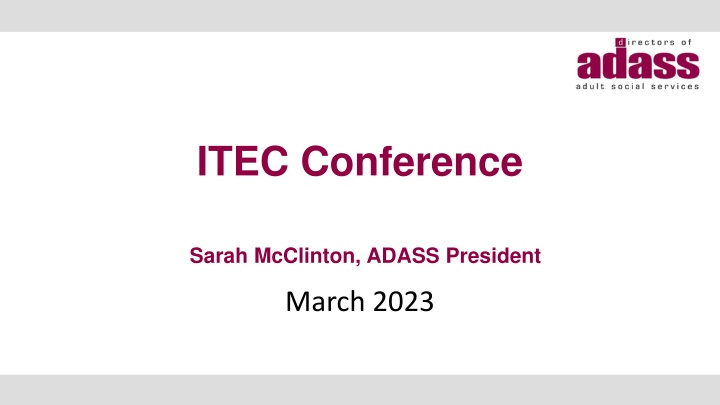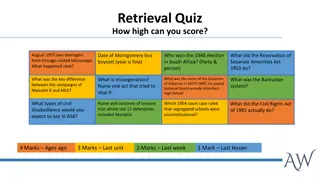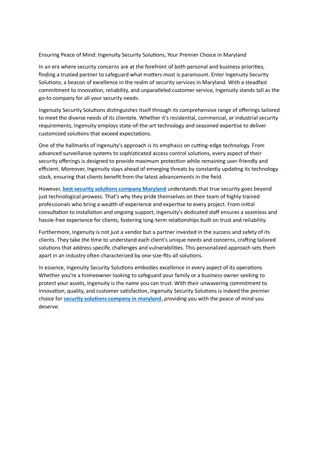
Prioritizing Quality Care and Support: Challenges and Solutions in Adult Social Care
Sarah McClinton, ADASS President, discusses the pressing issues in adult social care, including unmet needs, workforce shortages, and budget concerns. The focus is on integrating technology, improving workforce recruitment, and maximizing digital opportunities to enhance care services.
Download Presentation

Please find below an Image/Link to download the presentation.
The content on the website is provided AS IS for your information and personal use only. It may not be sold, licensed, or shared on other websites without obtaining consent from the author. If you encounter any issues during the download, it is possible that the publisher has removed the file from their server.
You are allowed to download the files provided on this website for personal or commercial use, subject to the condition that they are used lawfully. All files are the property of their respective owners.
The content on the website is provided AS IS for your information and personal use only. It may not be sold, licensed, or shared on other websites without obtaining consent from the author.
E N D
Presentation Transcript
ITEC Conference Sarah McClinton, ADASS President March 2023
Today I will be focusing on What keeps me awake at night - people not getting the quality care and support they need - workforce - resources ADASS/TSA commission how technology can be integrated Challenges & Opportunities
What keeps me awake at night- unmet need 491,633 people were waiting for an assessment of their needs, care & support or a direct payment to begin, or for a review of their care plan as of August 2022, up 24% from November 21 1+ million homecare hours could not be delivered due to workforce shortages between April- June 2022, an increase of 87% compared to a similar period in 2021. Complexity of need is driving an increase in the size of care packages in 83% of council areas.
What keeps me awake at night- workforce 165,000 vacancies in adult social care in 2021/22, a 50% increase on the previous year. The turnover rate of staff was 29%. Difficult to compete with other sectors- NHS, retail & hospitality - to recruit and retain staff. E.g. Aldi hourly rate will be 11.40 from July 23, NLW 10.42 from 1 April. Unpaid carers- 152,000 rise in number of carers providing over 50 hours of care to just over 1.5 million.
What keeps me awake at night- resources In the past three years Directors have reported cumulative savings of 1.8bn to adult social care budgets; over the previous decade this figure was 7.7bn. Broadly the new funding from Government for adult social care covers inflation and demography but no more. 75% of Directors either have partial or no confidence that their budgets will be sufficient to fully meet their statutory (legal) duties in 2023/24
1. Technology enabled services need to be proactive and co-produced with people, their families and carers. 2. Digital infrastructure, skills and approaches in social care must improve so individuals and all our staff can maximise digital opportunities.
3. People must own and control their health and social care data and enable access by the right people at the right time. 4. More collaboration is needed in care and support across all levels so services and policies are joined-up and contribute to the wider wellbeing of people, their families & carers.
Challenges Council Capacity- toassess whether opportunities presented by TEC providers match the needs & aspirations of people who access care & support. Culture, skills & expertise- at all levels of councils- the first thing SW thinks of, innovative market shaping maximising digital opportunities, leadership Data Security, Governance & Interoperability- inc. cyber security, information governance, etc
Opportunities ADASS Spring Survey 2022 Directors have indicated that their councils are taking positive investment strategies for Digital and technology (65%) Housing/accommodation models of care and support (62%) We need to shift the conversation away from hospital discharge to proactive and preventive care - how can we keep people happy, healthy and at home?
To conclude What role can we each play in harnessing digital technology to support people who draw on care and support (and those who are likely to need it in future) to live gloriously ordinary lives?






















